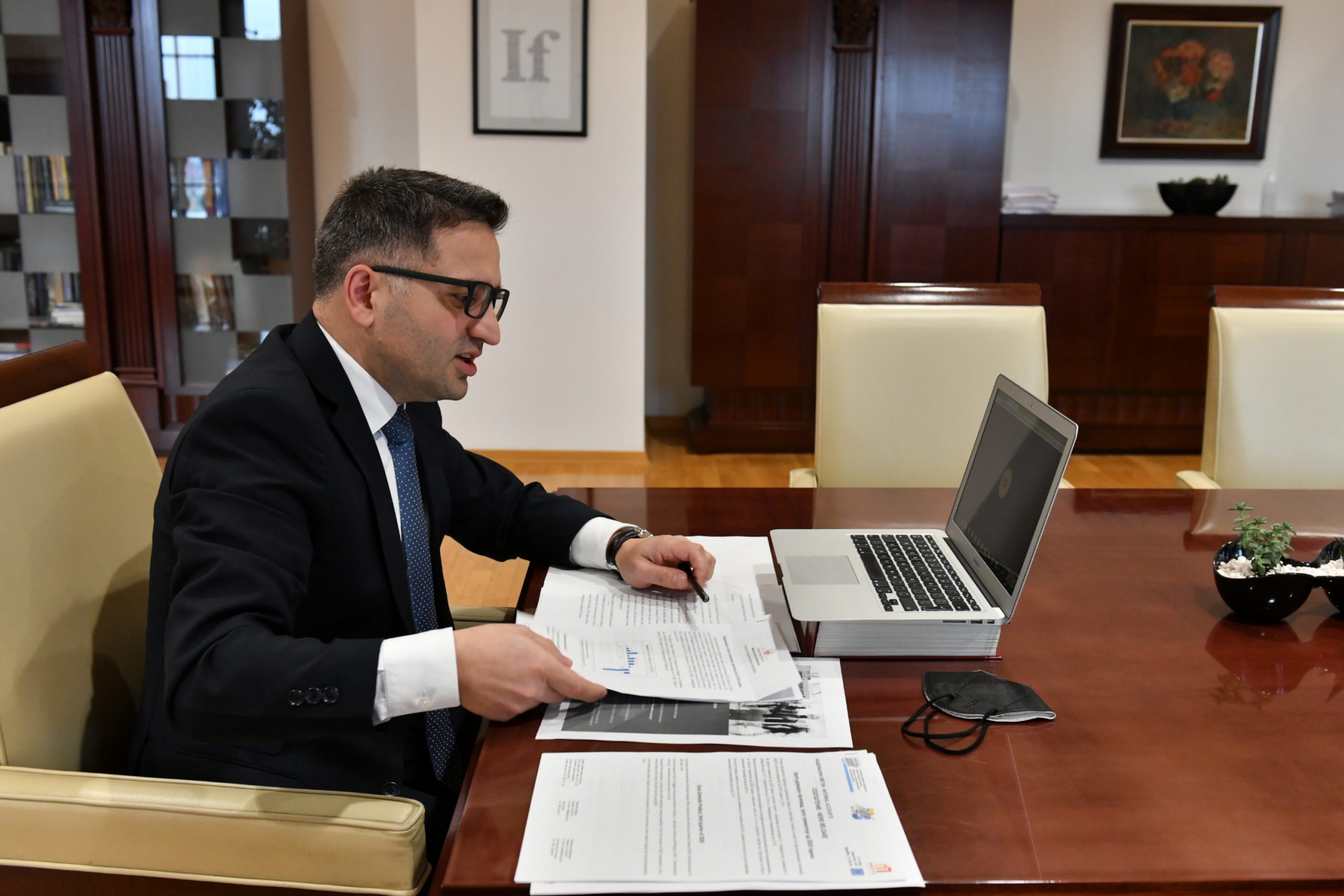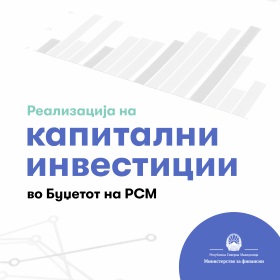9th December 2020, Skopje – Erste Investors’ Breakfast Conference was held eight year in a raw, organized by Erste Bank and Sparkasse Bank Macedonia through the Microsoft Teams online platform. As in the previous years, analysts and experts from Erste&Steiermärkische Sparkasse Group, as well as renowned representatives from the Macedonian financial sector, attended the Conference, with their analyses and projections on the current trends in the financial sphere, paying special attention to the effects from the COVID-19 crisis on the macroeconomic and the financial trends in the Republic of North Macedonia and the region.

President of the Board of Directors of Sparkasse Bank Macedonia, Ph.D. Gligor Bishev, gave an opening address and a welcome speech, and Minister of Finance, Ph.D. Fatmir Besimi, talked about the fiscal and the financial stability in his opening address.
The first professional presentation was made by the Governor of the National Bank, Ph.D. Anita Angelovska-Bezhoska, addressing the monetary policy during the COVID-19 crisis and the challenges to come. Mr. Mate Jelic, Senior Macro Analyst at Erste&Steiermärkische Bank d.d. Croatia, talked about the trends on the markets in Central and Eastern Europe and the sustainability of low yields on the capital market. Mr. Filip Jukik, Head of Fixed Income at Erste&Steiermärkische Bank d.d. Croatia, talked about current trends on the bonds market in South-East Europe.
“Even in conditions of global pandemic cause by COVID-19 virus, we continue the tradition, eighth time in a row, of being honorary hosts of the digital Erste Investors’ Breakfast in the Republic of North Macedonia. It is our great honor to exchange, this year as well, together with our colleagues from the Erste Group, our views in the field of financial markets, the challenges the financial institutions face in the region and in the Republic of Macedonia and their effects on the economic activity. Accommodative monetary policies have managed to calm and stabilize the financial markets. Despite the record-high budget deficits and government bonds issuance, yields are constantly dropping. Prices of both bonds and stocks continuously increase, signaling the beginning of economic recovery and growth. However, economic recovery will depend on three factors: managing the pandemic, coping with the companies’ balances and the capacity of the monetary and the fiscal policies as regards the implementation of the accommodative policies in the longer run”, Ph.D. Gligor Bishev, President of the Board of Directors of Sparkasse Bank Macedonia, said.
Minister Besimi underlined that the planned fiscal consolidation, the Strategy for Economic Recovery and Intensified Growth (SmartER Growth) and the Public Investments Plan set solid basis for returning the economy on the path of positive economic performance, restoring the pre-crisis economic growth in the second half of 2022 and providing for faster economic growth pace thereafter. According to the projections, economic growth in 2025 is expected to reach 5.9%, while in the period 2026 – 2030, average economic growth rate is expected to stabilize to 5.75% annually.

“The overall process of public finance reform entails introduction and operationalization of the SMART Finance concept (strategic, maintainable, accountable, reform-oriented and transparent), i.e. public finances supporting accelerated economic growth in the medium and the long run, thereby maintaining the fiscal sustainability and macroeconomic and financial stability (Smart Finance for SmartER Growth), Minister Besimi said.
In her presentation, Governor Anita Angelovska-Bezhoska, addressing the relaxing monetary policy of the National Bank since the outbreak of the COVID-19 crisis onwards, underlined that such policy and regulatory flexibility of the National Bank have contributed to further reduction of credit costs and intensification of the credit activity, providing for a significant support to the economy. In fact, as the Governor pointed out, interest rates on credits in our country are one of the lowest in the region, while the pace of credit growth is above the regional average.
“This period of more relaxed financial requirements in the banking system should be used to aim the financing towards productive and innovative projects, which will have not only short-term effects on the economic growth, but will also provide for structural improvements and intensification of the long-term potential of the economy, which is key to faster real convergence once the pandemic is over, Angelovska-Bezhoska said.
Sparkasse Bank Macedonia, as part of the large family of the Austrian Erste&Steiermärkische Sparkasse Group, continuously monitors the trends in the banking sector and strives for becoming one of the leaders in the development of the banking services in the Republic of North Macedonia. The Bank will continue investing its resources in creating a competitive client tailor-made offer, promoting the banking processes, greater digitalization and building a positive user experience when using the financial services.
Steiermärkische Sparkasse Group is the largest provider of financial services in South Austria. Employing 3,180 people, it provides services to 795,273 clients at 259 locations in Styria and South-Eastern Europe. Market share of Steiermärkische Sparkasse Group in Styria accounts for around 32% as regards retail management. Employing 9,139 persons, Steiermärkische Sparkasse Group provides services to around 2.6 million clients at total of 518 locations. “Sparkasse”, or “a saving house” its equivalent in English, is a success idea from economic point of view, pre-determined as a non-profit-making founding idea.















